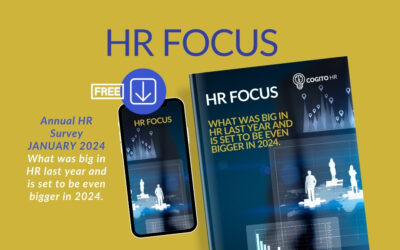Closing The Gender Pay Gap
As the gender pay gap continues to be a pressing issue, businesses are under increasing pressure to comply with annual reporting requirements. Cogito offers a comprehensive analysis of salaries and rewards across single, multi, or full workforces, helping you identify current gaps and compare your business to competitors, the wider industry, and the full UK market. From there, we work with you to craft a gender pay strategy that helps you achieve your targets while adhering to government regulations.
Click here for more on the current statistics for Gender Pay Gap by Forbes

Any employer with 250 or more employees on a specific date each year must report their gender pay gap data. This requirement for employers to report their gender pay gap data was introduced by the UK government in 2017. The rationale behind this is to increase transparency and accountability around gender pay inequality, and to encourage employers to take steps to address any gaps in their pay structures.
While the reporting requirement only applies to employers with 250 or more employees, many smaller employers have also chosen to voluntarily report their gender pay gap data. This can be a positive step for employers to demonstrate their commitment to gender equality and to identify any areas where they may need to make changes to their pay practices.
It’s worth noting that the gender pay gap is not the same as unequal pay, which is when men and women are paid differently for doing the same job. Rather, the gender pay gap refers to the overall difference in average earnings between men and women across an organisation. Various factors can influence the gender pay gap, such as the types of roles men and women tend to occupy, the proportion of men and women in senior positions, and the extent to which part-time work is more common among women.
By reporting their gender pay gap data, employers can gain a better understanding of the factors driving any gaps in their pay structures and take steps to address these issues. This might include measures such as reviewing job descriptions and pay scales to ensure they are fair and transparent, providing training and development opportunities for women to progress into more senior roles, and tackling unconscious bias in recruitment and promotion processes.
There are several legislations in place to combat pay discrimination in the workplace. These include:
1. The Equal Pay Act of 1963: This law prohibits pay discrimination based on gender. It requires men and women in the same workplace to receive equal pay for equal work.
2. The Lilly Ledbetter Fair Pay Act of 2009: This act extends the time for employees to file a pay discrimination claim. It resets the statute of limitations for filing a claim with each new paycheck that reflects a discriminatory wage.
3. The Paycheck Fairness Act: This act would amend the Equal Pay Act of 1963 and close loopholes in existing legislation. It would require employers to prove that pay differences are based on factors other than gender, such as education or experience.
Despite these laws, the gender pay gap still exists in many industries. More efforts are needed to ensure gender equality in the workplace. Employers should regularly conduct pay audits to identify and address any pay disparities based on gender. Moreover, women should be encouraged to negotiate for higher salaries and given equal chances for career growth.

Why Choose Cogito as Your Independent Consultant
There are several compelling reasons why choosing Cogito as your independent consultancy to analyse your gender pay gap is a smart decision. Here are some of the top reasons:
- Expertise: Cogito has a team of experienced consultants who specialise in gender pay gap analysis. These experts have a deep understanding of the complex factors that contribute to pay disparities, and they use this knowledge to provide actionable insights and recommendations.
- Methodology: Cogito employs a rigorous methodology to analyse your gender pay gap, ensuring that the results are accurate, reliable, and unbiased. This is achieved through a blend of macro and micro data analysis, which enables you to benchmark more effectively using evidence-based insights that are specific to your company and the skills you employ. The methodology includes a detailed review of your pay data, as well as an analysis of factors such as job titles, seniority, and performance ratings.
- Customisation: Cogito understands that every organisation is unique, and that there is no one-size-fits-all solution to gender pay gap analysis. That’s why they work closely with each client to develop a bespoke approach that meets their specific needs and goals.
- Transparency: Cogito believes in transparency and open communication throughout the analysis process. They will keep you informed every step of the way and ensure that you fully understand the results and recommendations through a discovery phase, regular feedback sessions, and a detailed presentation of findings.
- Reputation: Cogito has a strong reputation in the industry for delivering high-quality, reliable gender pay gap analysis. Their clients include some of the world’s leading organisations, and they have a proven track record of success.
-
Supporting Narrative and Action Plan: We understand that progress in closing the gender pay gap requires more than just data analysis. Cogito can also help develop and implement an actionable strategy that can be used in your business to improve the results year on year. We will write a supporting narrative that brings the data to life, explains any gaps, and demonstrates your commitment to gender equity in your business. The action plan will provide details on what your business can do to support gender equity and close the gender pay gap.
Overall, choosing Cogito as your independent consultancy to analyse your gender pay gap is a smart investment in your organisation’s future; you can be confident that you will receive accurate, actionable insights to help you close the gender pay gap and create a more equitable workplace for all employees.
Simply complete the form and instantly receive your copy of the Employment Law update - April 2024.






